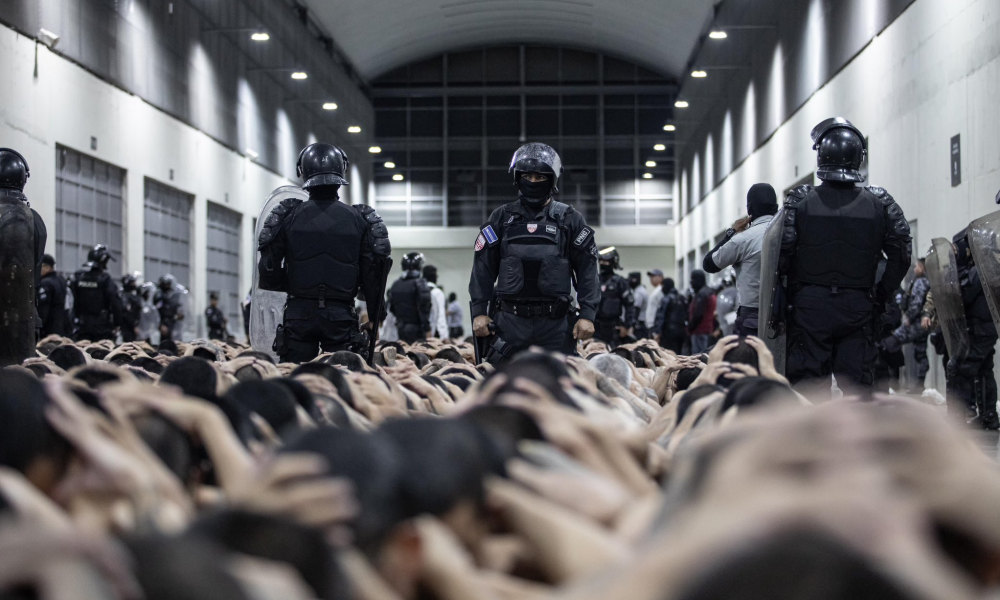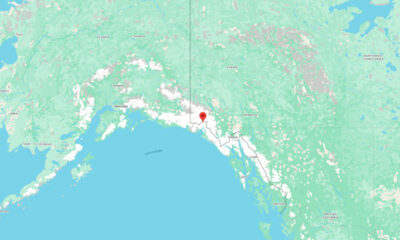Politics
Supreme Court clears path for deportations under Alien Enemies Act

The U.S. Supreme Court on Monday sided with the Trump administration in a major immigration case, allowing federal authorities to resume deportations of Venezuelan nationals designated as members of a foreign terrorist organization.
In a per curiam opinion, the Court vacated lower court orders that had temporarily blocked removals under the Alien Enemies Act, a statute dating back to 1798. The orders had paused the deportation of individuals allegedly linked to Tren de Aragua, a Venezuelan criminal group recently designated a Foreign Terrorist Organization by the State Department.
The ruling does not address whether the government has correctly applied the law but concludes that legal challenges must be brought as habeas petitions in the district where detainees are held. The decision effectively shifts jurisdiction to Texas, where most of the detainees are in custody, and allows the government to continue removals while legal challenges proceed.
President Trump hailed the ruling in a post on Truth Social, writing: “The Supreme Court has upheld the Rule of Law in our Nation… A GREAT DAY FOR JUSTICE IN AMERICA!”
The case stems from a March 14 proclamation by President Trump invoking the Alien Enemies Act to detain and remove Venezuelan nationals allegedly affiliated with Tren de Aragua. The following day, dozens were loaded onto planes for deportation to El Salvador, where they were placed in the country’s high-security Terrorism Confinement Center, CECOT. Civil liberties groups quickly filed suit, claiming the removals violated due process and relied on questionable evidence of gang affiliation.
Justice Sotomayor accused the government of attempting to evade judicial oversight by rushing deportations before the courts could intervene. She criticized the administration’s actions as an “extraordinary threat to the rule of law,” noting reports that some detainees were targeted based solely on tattoos or social associations.
Justice Ketanji Brown Jackson also warned that the Court’s emergency intervention short-circuited normal judicial procedures. “The President of the United States has invoked a centuries-old wartime statute to whisk people away to a notoriously brutal, foreign-run prison,” she wrote. “This fly-by-night approach to the work of the Supreme Court is not only misguided. It is also dangerous.”
Under Monday’s ruling, detainees will now be notified they are subject to removal and given an opportunity to file habeas petitions before any future deportations occur.

-

 Health1 week ago
Health1 week agoFrance confirms 2 MERS coronavirus cases in returning travelers
-

 US News5 days ago
US News5 days agoMagnitude 7.0 earthquake strikes near Alaska–Canada border
-

 Entertainment1 week ago
Entertainment1 week agoJoey Valence & Brae criticize DHS over unauthorized use of their music
-

 US News1 week ago
US News1 week agoFire breaks out at Raleigh Convention Center in North Carolina
-

 Legal2 days ago
Legal2 days agoShooting at Kentucky State University leaves 1 dead and another critically injured
-

 Legal1 week ago
Legal1 week agoWoman detained after firing gun outside Los Angeles County Museum of Art
-

 Health1 week ago
Health1 week agoEthiopia reports new case in Marburg virus outbreak
-

 Business20 hours ago
Business20 hours agoUnpublished TIME cover suggests AI leaders may be named Person of the Year




